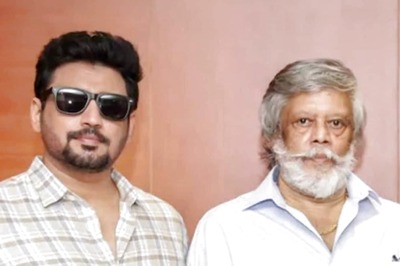
views
BANGALORE: Coming down heavily on industries which are polluting the environment through electroplating in and around Peenya Industrial area, the Karnataka State Pollution Control Board (KSPCB) has set March 31 as deadline to comply with the Statutory Act failing which such industries would be closed down.The Board held a workshop on ‘Cleaner Technologies for Electroplating Industries,’ during which they claimed that it was a personal hearing of the manufacturing companies that release toxic materials and heavy metals into the environment through electroplating. Inaugurating the workshop, KSPCB chairman A S Sadashivaiah said, “Industries have to compulsorily adopt alternative measures which would not pollute the water bodies in the area. Besides, they have to strictly adhere to the Statutory Act as prescribed by the Pollution Control Board or else the board would recommend to the appropriate authorities to close such industries.”He spoke about the ill effects caused by the industries and said, “According to the Comprehensive Environmental Pollution Index (CEPI), Peenya has been named as one of the most polluted areas in Bangalore city with regard to water pollution. The Union government has directed the State government to take appropriate measures in this regard. Bangalore being the hub of engineering and automobiles, has caused a lot of concern over the pollution.” “Borewell water in Peenya is highly contaminated as the level of Hexavalent Chromium whose tolerance level is 0.1, has exceeded 15 to 20 times the prescribed standards, due to the negligence of units, which do only plating for a large variety of components for both domestic and export purpose,” Sadashivaiah stated,B S Jai Prakash, former principal of Indian Institute of Technology, said, “There are totally 30,000 metal finishing units in India, which include 400 major units. All these electroplating industries have formed clusters among themselves around India, but in Bangalore, the industries are yet to form clusters. At the same time, there are various hard facts that lead to dumping of metal waste in drainage.”“It is imperative to use new technologies in order to meet the standard demands and save the environment and ensure a proper process optimisation for effective control of effluents is met and also through recommending industries to inculcate recycling and resource recovery,” he opined.
















Comments
0 comment